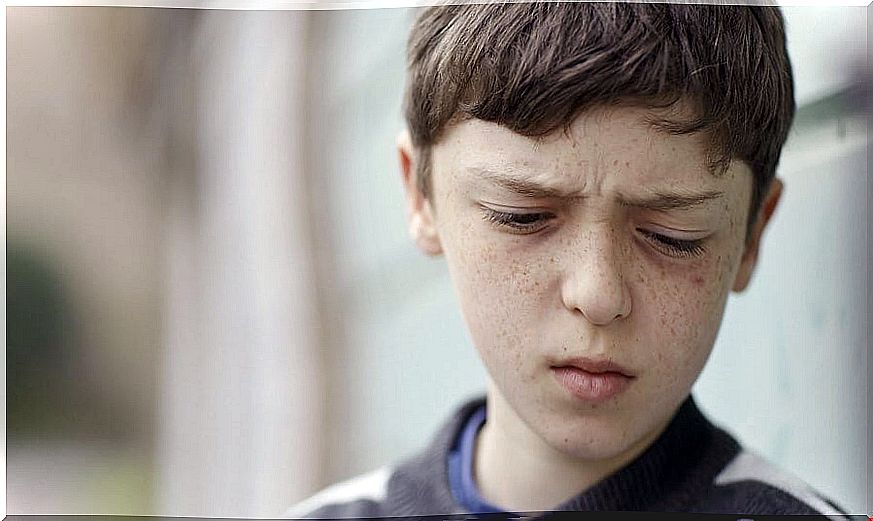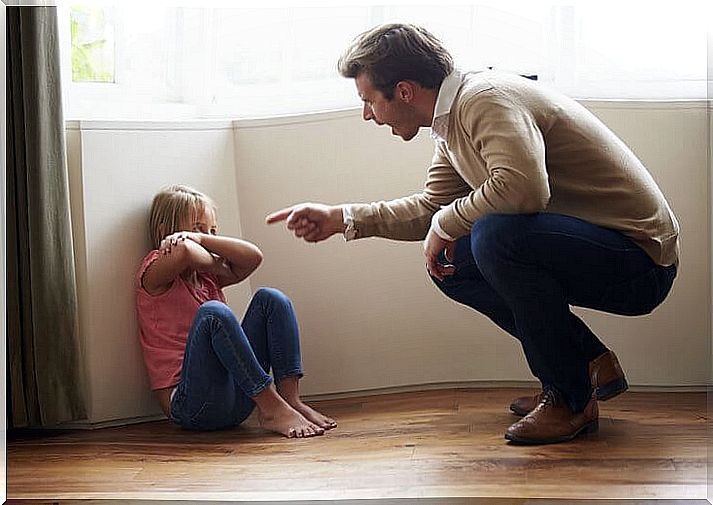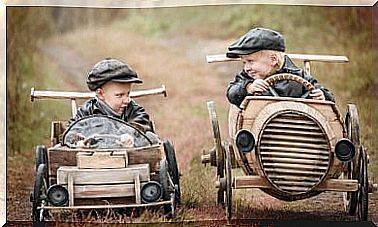Learn About The Terrible Psychological Damage Caused By Verbal Abuse In Childhood

Verbal abuse in childhood directly affects the self-esteem of the little ones. However, we are not aware of all that it entails. This is because, at times, we can confuse it with the use of bad words. However, it goes much further.
Verbal abuse is a direct attack on the feeling of worth of the person who receives it, in this case the children. In addition, mistreating through words also implies mistreating on a psychological level. In fact, according to data from the National Child Traumatic Stress Network (NCTSN), psychological abuse is the most frequent form of violence.
It is very important that if we are parents we take care of what we say to our children. Hence, checking our way of communicating with them and especially how we point out their mistakes is essential.
Why does verbal abuse leave a mark in childhood?
The reason why verbal abuse in childhood leaves an important mark is that childhood is a very critical moment of the developmental stage. The nervous system and the brain are very vulnerable to any stimulus from the environment, therefore everything that happens outside influences the child in one way or another.
Furthermore, according to J. Pinel, the neurodevelopmental process runs from conception to the fetal period, continues in the postnatal period and does not slow down until adulthood. Therefore, it is natural for children to be at a stage susceptible to neuropsychological damage.

On the other hand, a publication entitled Review of the neuropsychology of child abuse: the neurobiology and neuropsychological profile of victims of abuse in childhood tells us about how verbal abuse can cause attention and memory problems, language difficulties and intellectual development and school failure.
Now, in what way do we favor that verbal abuse in childhood is something that is more present than it should? How do we cover it up so that, sometimes, instead of calling it by its name, we justify it by pointing out that we are “teaching” or “educating” as best we know?
The punishment is the culprit
Many parents do not know how to educate their children in any other way than by always influencing what they do wrong. On the other hand, if they do something well, they do not point it out because they think it should be that way; Hence, if a child protests they firmly affirm “it is what you have to do.”
However, in a stage as delicate as childhood, focusing only on the negative aspects has serious consequences. In fact, most of the time, not only is it pointed out what the child does wrong, but it is even encouraged to feel guilty for having made their parents angry. To this we have to add the poor choice of words to express these messages.
Comparing a child with another or throwing a “you are stupid” can seem innocent, even someone can justify that the parent was so angry that he lost his temper. However, all this can leave an indelible mark on the mind of any child, especially if it is done on a recurring basis.
For example, if when he tries to solve a math problem we call him “stupid” for not doing it right the first time, while emphasizing that his friend always does it right, the child will consider him to be clumsy in the matter. Furthermore, he will also believe that he is a worse student than his friend.
Immediately, he will believe that he has nothing to do, which will lead him to reject mathematics in the future. This can also cause you to feel a certain fear of failure and at the slightest failed attempt in any area, you will throw in the towel because it will be labeled “invalid”.

What self-image do we want the child to form of himself with this type of behavior? Because let’s not forget that during childhood you are building your identity. An identity plagued by “I am worth nothing”, “I am to blame that my parents get angry”, “I do nothing right”, “I am a fool”, “I am a disaster” and “I deserve the worst” will prevent build strong self-esteem.
As we can see, verbal abuse in childhood affects children in an important way. It must also be said that sometimes, parents do not realize that their frustration at work, high levels of stress, relationship problems or the burden of multiple responsibilities are projected onto their children through their language. Aspect that they must take into account if they want their children to be happy.
Being able to properly manage emotions, empathize with the little ones and, above all, learn to communicate positively with them, taking into account their self-esteem, is essential. At the end and Cape, n or we turn them into adults insecure, sad, who believe themselves incapable and that eventually limits will actually have.









